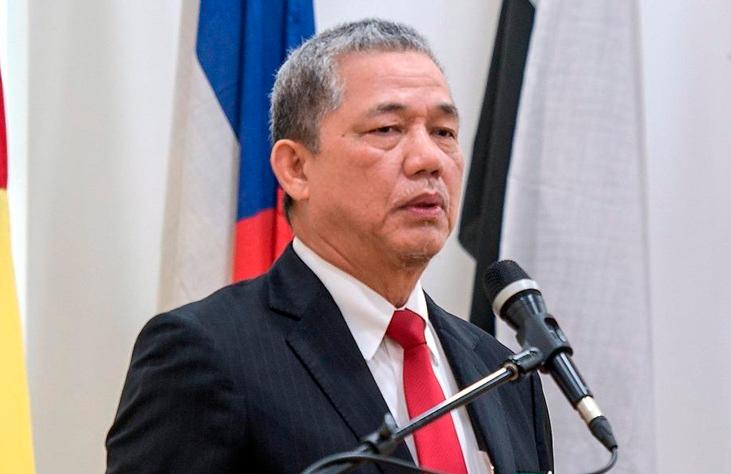KUALA LUMPUR: Malaysia’s push for a low‑carbon future gained new momentum yesterday as senior government and financial leaders pledged deeper collaboration to accelerate energy transition.
This pledge came about when Deputy Prime Minister and Energy Transition and Water Transformation Minister Datuk Seri Fadillah Yusof reaffirmed the government’s commitment to build a resilient, affordable and inclusive energy system
“Our energy transition must be people‑centred, regionally aligned and grounded in realism,” Fadillah said in his keynote address at MBSB Group’s Ministerial Luncheon Talk on “Driving the Green Energy Transition” today.
“We are not chasing ideals, we are shaping outcomes,” he emphasised.
He stressed that the transition is not merely about technology but about trust, empowerment and safeguarding livelihoods.
Fadillah disclosed that as of July, renewable energy accounted for 31% of Malaysia’s electricity mix, led by solar capacity exceeding 4,200MW. The country, he said, was on track to achieve 40% by 2035 and 70% by 2050 under the National Energy Transition Roadmap (NETR).
As Asean chair this year, Malaysia will spearhead efforts to expand the Asean Power Grid and cross‑border renewable energy trading. The Energy Exchange Malaysia, launched last year, enabled the first exports of renewable energy to Singapore.
Later, speaking at a press conference, Fadillah confirmed upcoming reforms to the Net Energy Metering Scheme, which currently allows solar users to sell excess power back to the grid. “People who don’t have solar panels still pay the full tariff, so we must revisit the system to make it more equitable,” he said.
Two mechanisms are being introduced: Selco, which promotes self‑consumption of solar energy with optional battery storage and KRIM, which allows communities within a 5km radius to jointly use and manage renewable energy resources.
“This is about democratising energy,” Fadillah said, adding that communities can govern their own usage, and not just individuals anymore.
On future energy sources, he said nuclear power remained under study, with no decision expected until after 2030.
“Safety, social well‑being and environmental concerns must all be evaluated thoroughly. It’s too early to say whether we will use it or not.”
Large‑scale solar development remains a central pillar of Malaysia’s renewable push. The recently concluded LSS Petra 5+ programme will add 2GW of solar capacity by 2027, but any subsequent LSS6 round will hinge on actual consumption data rather than projected demand, particularly from data centres.
Fadillah called on financial institutions to scale up investments in green infrastructure and support SMEs in decarbonising supply chains, highlighting Malaysia’s global leadership in Islamic sustainable finance.
“Transitioning to a clean economy isn’t a cost, it’s an investment,” he said, noting that Malaysia requires US$143 billion in financing by 2050 to meet its transition goals.
Meanwhile, MBSB Group chairman Datuk Wan Kamaruzaman Wan Ahmad said sustainability is “not a standalone initiative” but embedded at the core of the group’s corporate strategy.
“These are not slogans. We are financing Malaysia’s green future – one locomotion upgrade, one rooftop solar system, one waste‑to‑energy facility at a time.”
He disclosed that MBSB mobilised RM4.75 billion in sustainable and transition‑aligned financing in 2024, about 30% of its total financing for the year. Over the past 18 months, nearly RM3 billion has been channelled into projects including low‑emission locomotives for Keretapi Tanah Melayu Bhd, Malaysia’s first floating solar array at Pantai Remis, renewable‑powered data centres in Johor and landfill gas capture facilities.
Wan Kamaruzaman said, “Finance is the oxygen of the transition. When we do our job well, engineers can design boldly, entrepreneurs can scale quickly and policymakers can lift their ambitions.”
The event also marked the formalisation of a strategic partnership between MBSB and Cypark Resources Bhd to advance renewable energy and waste‑to‑energy initiatives.
Looking ahead, MBSB will operationalise a syariah and sustainability centre of excellence to co‑create Islamic green finance instruments, launch a client transition‑support programme with sector‑specific toolkits and advisory services, and publish a third‑party verified baseline of its operational emissions. The group has also pledged 50,000 volunteer hours for community and environmental initiatives by 2030.
The event drew senior representatives from the Employees Provident Fund, Permodalan Nasional Bhd, corporate partners and SMEs, underscoring the importance of public‑private collaboration in achieving Malaysia’s climate ambitions.









